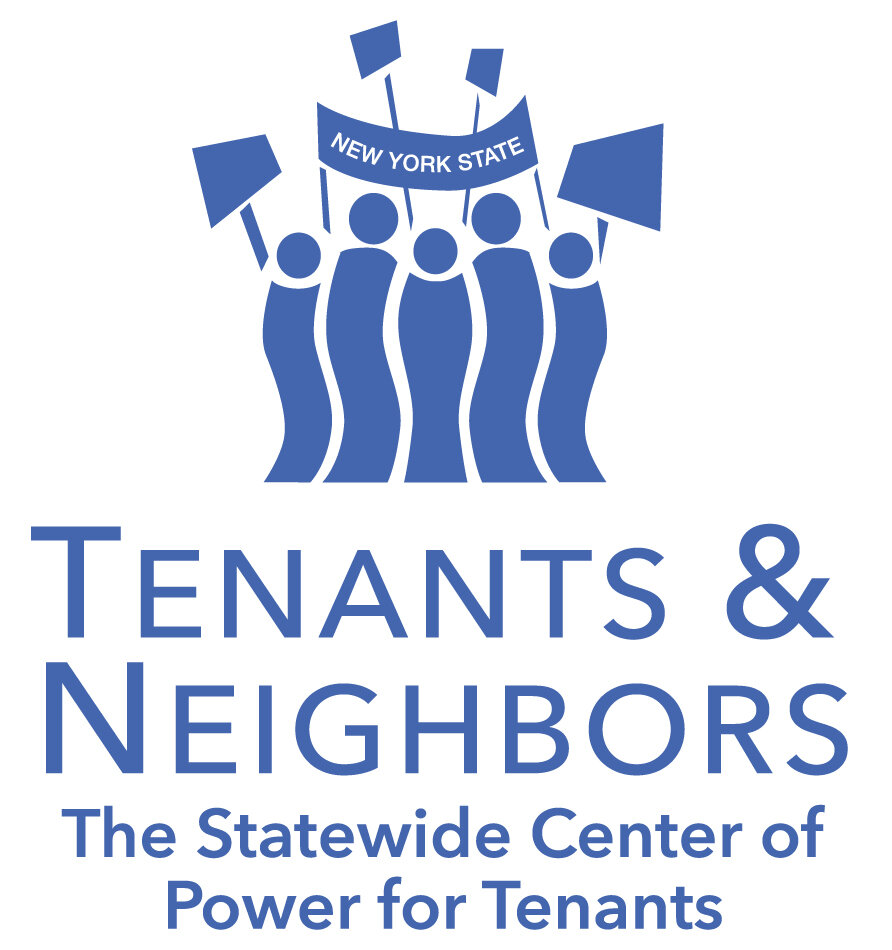Victories
Building Victories
Homestead Village is a 431-unit HUD-subsidized housing development located in Coram, NY. Homestead’s family units represent 39% of all subsidized family units in Suffolk County. The complex was covered by two subsidies from HUD. 86 units were covered by a project-based Section 8 contract, which can be renewed at the owner’s discretion. The owner has already submitted the obligatory notice to the HUD and to the tenants indicating that they want to leave the program. At the end of the contract, most of those tenants would be eligible to apply for Tenant Protection Vouchers. The remaining 345 units are kept affordable only because of a HUD-insured mortgage. That mortgage expired October 1, 2014. Due to advocacy of the tenants, Tenants & Neighbors, and Congressman Tim Bishop, the federal housing agency has issued tenant protection vouchers so tenants will be able to stay in their homes.
This is an enormous victory for tenants who live in 345 of the units, counting for hundreds of tenants, who were facing a 15% rent hike immediately after the HUD-assistance contracts expired. Those tenants covered by the contract were already eligible for the tenant protection vouchers, but this has become available for the majority of the complex’s tenants. Homestead Village provides deeply-affordable rental housing to households with incomes below 80% AMI (Area Median Income), contributing 427 households in one of the wealthiest counties in the country. Without protection for these tenants, there would be destabilization for the housing situation of 427 households many of whom have lived in their apartment for a decade or more. Since Long Island, as a whole, has a severe shortage of rental housing, it is unlikely that Homestead’s tenants would be able to find other housing in the area.
HCR Reform Victory
In January 2014, after a 3-year campaign of community, housing, and legal advocacy organizations, the New York State Homes and Community Renewal put in place strong regulations that amended key loopholes in the rent stabilization code. This is an important shift in regulatory policy that will slow the further loss of affordable housing and the displacement of low and moderate income people from their communities by limiting the ability for unscrupulous landlords to violate the rent laws. The amendments to the rules and regulations should greatly help protect tenants by mandating greater transparency from landlords, clarifying questions about rent setting, and expanding tenants’ ability to challenge rents they believe to be unlawfully high.
Rent Guidelines Board
On Monday, June 23, 2014 the Rent Guidelines Board voted for the lowest increase in the history of the board with a 1% increase for a one-year lease renewal and 2.75% increase for a two-year lease renewal. After a historic opportunity to correct the course of unjustifiably high rent increases under Mayor Bloomberg’s administration, the Board voted for minimal rent hikes for low and moderate income tenants. Tenants & Neighbors worked closely with a citywide coalition of hundreds of tenants, elected officials, legal service providers, and tenant advocates during the past few months. As a result of these efforts, the tenant movement came the closest we ever have to a rent freeze.
Despite this, we are disappointed that the Rent Guidelines Board did not vote for a rent freeze. A rent freeze was what New Yorkers needed. At Tenants & Neighbors, our members are facing a great affordability crisis and are making hard financial decisions every day. Paying increasingly unaffordable rent means not being able to buy medicine, food, clothes, take vacations, visit grandchildren, and means having to take in roommates. Throughout the campaign, tenants testified about the increasing unaffordability of their apartments and neighborhoods, predatory equity speculation in regulated housing, and the Board’s obligation to consider their own data of increasing profit for landlords and high rent burdens for tenants. You can see some of the tenant’s stories by clicking here.
